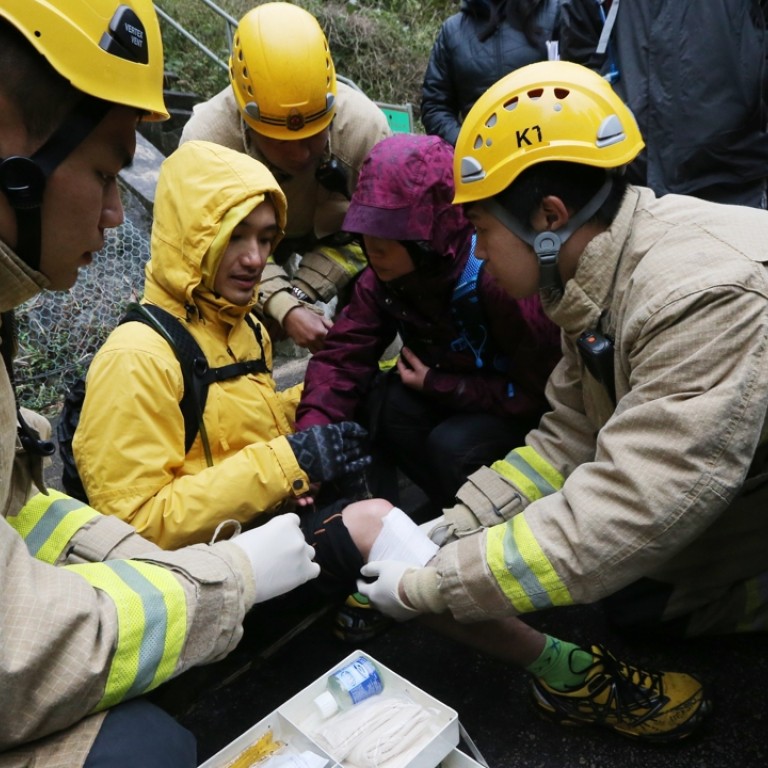
Letters to the editor, January 25, 2016
Temperature not too low to go to school
The Hong Kong Education Bureau’s announcement on Sunday evening that all kindergartens and primary schools must close on Monday due to “unusual weather” is absolutely ridiculous. I know many parents share my views as it has been the talk of the town on Sunday night.
With no snow predicted in Hong Kong and a forecast of “fine and dry conditions of around 9 degrees Celsius” by the Observatory, how can the closure of schools be justified? In many other places in the world – certainly currently in Europe and the US – millions of children are going to school in far colder and snowier conditions and a day of 9 degrees would be considered a good or even mild winter’s day.
Surely this policy requires an immediate rethink.
If the Education Bureau must send out such directives, then why not make them compulsory only for local schools and amend them to exclude all private and international schools, where we parents pay substantial fees and are more than comfortable with our children attending school on a fine 9-degree day. We parents fully trust the directors of these private schools to make educated judgments on the safety and welfare of our children based on an official weather forecast.
Kirsten Grant, Repulse Bay
Frost chasers need more common sense
I refer to the article “Polar vortex hits Hong Kong: record low temperatures close schools, hospitalise 45, injure 111 as 130 trapped on Kowloon Peak” (January 24).
The cold snap has been unprecedented and sudden. After the Observatory announcement that temperatures would drop to sub-zero at high attitude, a large number of people climbed up Tai Mo Shan hoping to see snow. Nevertheless, the crowds ignored risks such as freezing roads and the possibility of hypothermia.
Of course, they got stranded, and firefighters had to go on a rescue mission. This should be a lesson for Hongkongers on being more responsible. Those stranded citizens should have looked before they leapt. Even though an occurrence of snow in Hong Kong is so rare that it’s understandable for citizens to have a keen interest, they should consider the risks of climbing a peak during this extreme weather and jeopardising not just their own lives, but also those of our firefighters.
Brian Chan, Tsuen Kwan O
HKU boycott shows a lack of gratitude
A cross-section of University of Hong Kong students has decided on a class boycott in protest against the appointment of Arthur Li Kwok-cheung as chairman of the university’s governing council. Its vice-chancellor has taken the stance of no action against the activity as long as it does not infringe the law.
I appreciate such an open-minded democratic spirit. On the other hand, those who have the privilege of receiving higher education paid for with taxpayers’ money should value it. Is such a protest, motivated by politics, beneficial for their future, for their parents and for society on the whole?
The trouble started by students boycotting classes reminds me of the Mao era that prided itself on “the more trouble, the better”.
We should bear in mind the Chinese saying: “A scholar influenced by politics only is good for nothing”. What a sad commentary on the otherwise trouble-free Hong Kong region.
Learning without thinking is superfluous.
Peter Wei, Kwun Tong
Lantau should be off limits for development
I disagree with your editorial, “Hong Kong must find space on Lantau island for development” (January 19).
Not only will Hong Kong people lose a place where we can relax, away from the pressures of urban living, development on Lantau will also affect the island’s ecology, robbing animals of their habitat.
It is crystal clear why we lack sufficient housing. The problem is that we have many mainland Chinese buying up property in Hong Kong, and putting prices out of reach of local people. Therefore, the government must do more to limit mainlanders’ purchase of property.
At the same time, the government should buy up old flats for redevelopment. While some residents may be affected, I think a solution that requires the sacrifice of a small number of people is better than one that will be worse for everyone.
Chan Kwan Tung, Tsuen Wan
Modi’s efforts worthy of Nobel Prize
As India celebrates Republic Day on January 26 – the day its constitution came into force, back in 1950 – the vision and dedication of Prime Minister Narendra Modi brings hope. He and his Bharatiya Janata Party have been putting sincere efforts into freeing India of the various ills they inherited.
Unlike some past leaders, Modi has courageously gone against the tide and taken the corrupt rich and powerful to task. He also has to keep an eye on his own party members, to ensure they avoid corruption when signing agreements with overseas countries, including huge infrastructure projects.
He is also aiming to stop the flow of drugs smuggled in from other countries, which affects Indian youths.
As for his foreign policy, Modi has proved his critics wrong by extending a hand of friendship to all countries. He is well aware that some detractors do not believe in peaceful coexistence and try to derail the progress made in peace talks.
He is also aware that peace brings prosperity and that better relations with Pakistan are beneficial to both countries, which was why he made a surprise visit to Lahore last month to meet Pakistani President Nawaz Sharif. This unprecedented meeting is most laudable and hopefully the related authorities in Sweden will consider Modi as one of the hopefuls for the Nobel Peace Prize.
Ranjit Bhawnani, Tsim Sha Tsui

